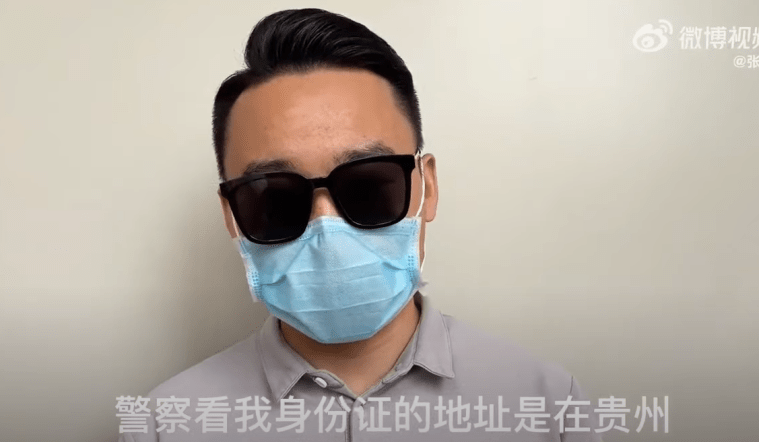Taipei, June 21, 2022 – Chinese authorities should thoroughly investigate the alleged police attack on journalist Zhang Weihan and ensure that the press can work freely and without fear of harassment, the Committee to Protect Journalists said Tuesday.
Zhang said in a video that on June 12, police in the northeastern city of Tangshan detained and roughly searched him while he was in the city to cover the aftermath of an incident in which men assaulted four women who had rejected their sexual advances at a local barbeque restaurant.
Zhang, a reporter for the state-run broadcaster Guizhou Radio TV Station’s Common People Watch news program, said he was at that restaurant to interview people about the incident when police arrived responding to an unrelated call about a man playing music and urinating at the scene. Police did not pursue that man, but “instead, police detained me and asked me to cooperate with an investigation without giving any reasons,” he said.
Officers confiscated his identification card and a power bank, and forced him to unlock his phone to show his chat history, he said.
At the local Airport Road police station, an officer shouted at Zhang, held his neck with his elbow, pushed his head to the ground, and forced him to kneel while he searched him, he said in the video, adding that he was held in an interrogation room for hours while that officer insulted him for “having no quality and no culture.”
The authorities released him at about 9 p.m. after searching him a second time, and did not provide “any explanation” or documentation for his detention, Zhang said in the video.
“Police in Tangshan and elsewhere need to allow journalists to do their job of reporting the news and informing the Chinese people of important events, including crime,” said Steven Butler, CPJ’s Asia program coordinator, in Washington, D.C. “Police should investigate the alleged abusive treatment of journalist Zhang Weihan and discipline any officers responsible.”
Commenting on the officer’s remarks during his interrogation, Zhang said, “I was dumbfounded and wondered what I did that lacks quality and culture.”
Zhang originally uploaded his video to the Chinese social media network Weibo, but the video was taken down and subsequently reposted to other Chinese social media platforms and YouTube.
Separately, he said in his video, an employee at the Tangshan Railway Station told Zhang upon his arrival on June 11 that he could not exit the station because he had not notified city community authorities of his arrival at least 48 hours in advance, citing COVID-19 restrictions.
Zhang found the gate unattended and left the station, he said in the video, adding that it was “worth discussing whether it’s a normal disease prevention measure or an excuse to block outsiders, such as journalists, from entering the city.”
According to news reports, other journalists going to the city to cover the aftermath of the attack were also obstructed by the city’s COVID-19 protocols, including a reporter for the state-run news app Xin Huang He, who was stopped at the railway station and asked to sign a letter promising to not go outside of the hotel or residence where they were staying.
CPJ contacted Guizhou Radio TV Station for comment via messaging app but did not receive any reply. CPJ also called the Airport Road police station for comment, but no one answered.
According to CPJ’s most recent prison census, at least 50 journalists were imprisoned in China as of December 1, 2021, making it the worst jailer of journalists worldwide for the third year in a row.
